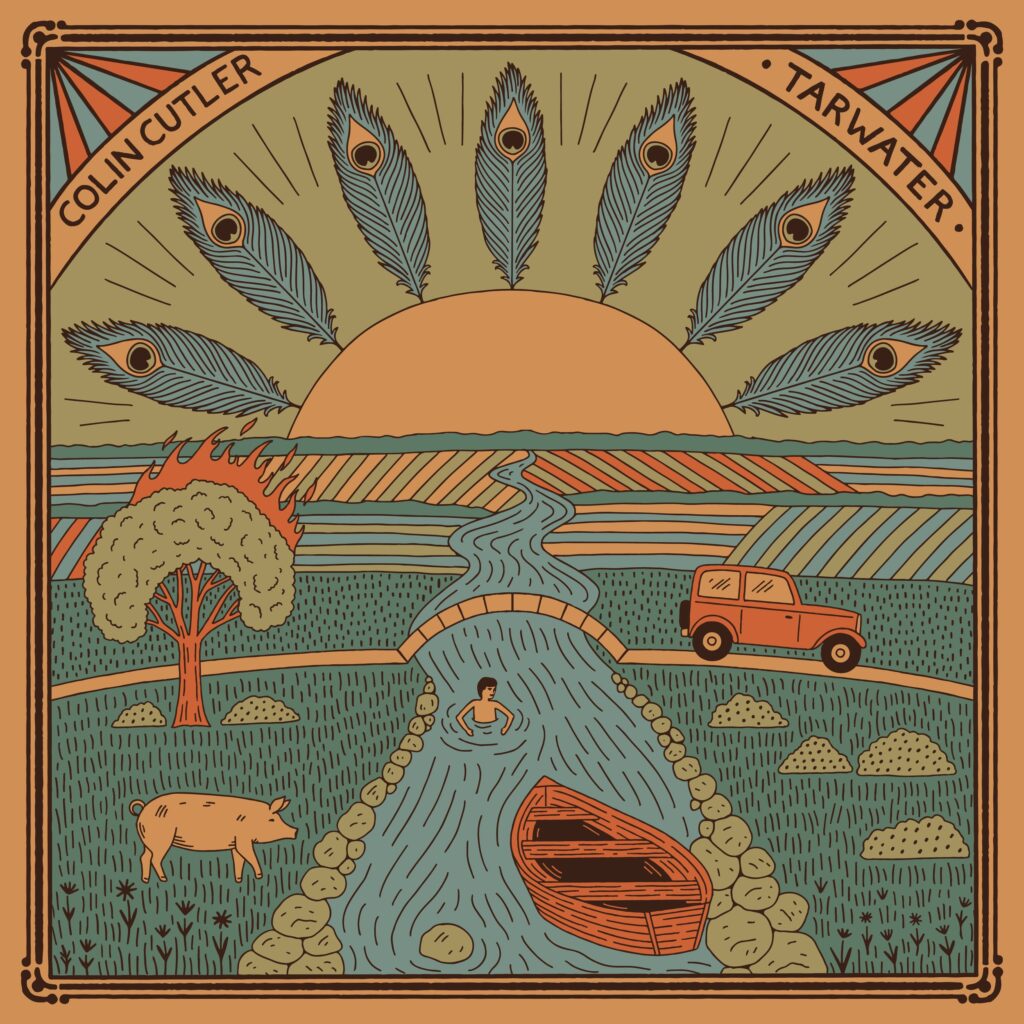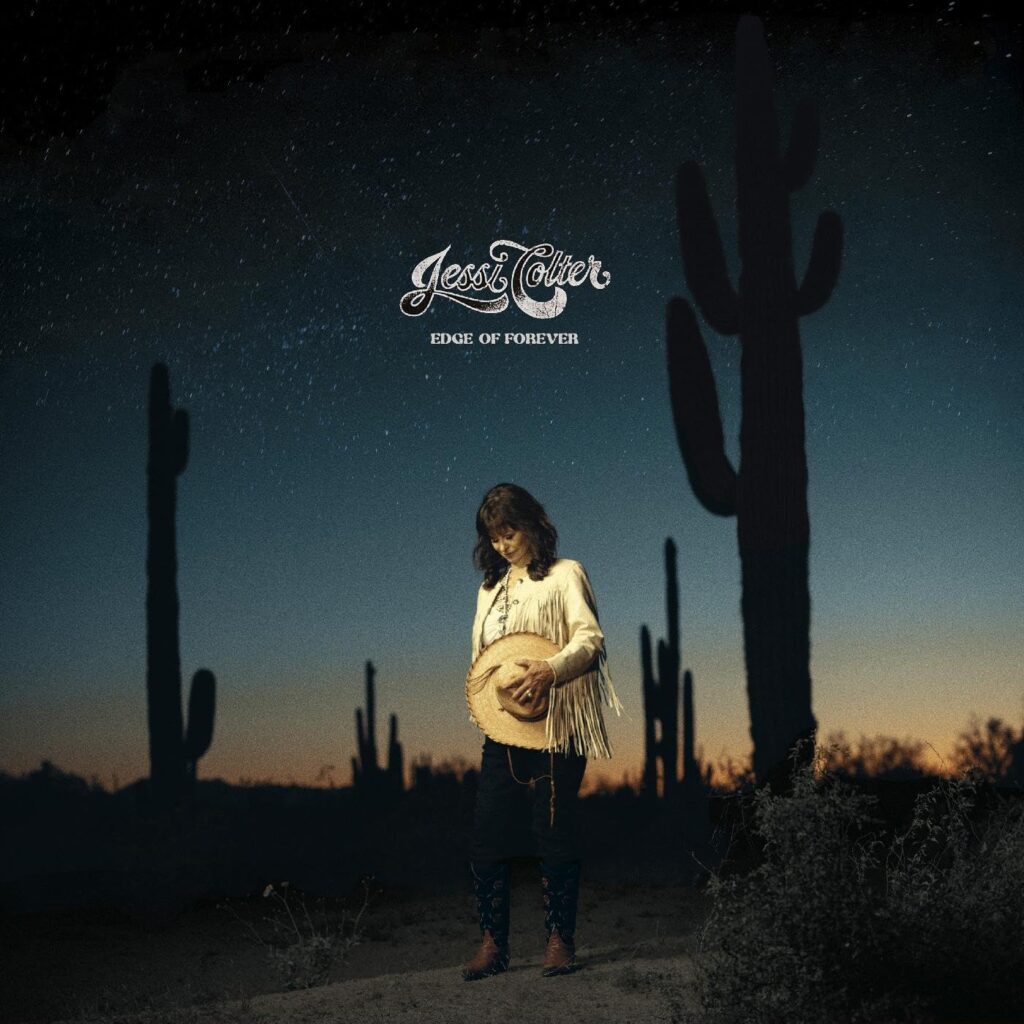By Brian Rock North Carolina Americana artist, Colin Cutler takes inspiration from Flannery O’Connor on his fourth album, Tarwater. The title is a reference to the main character from O’Connor’s short story, “You Can’t Be […]

By Brian Rock
North Carolina Americana artist, Colin Cutler takes inspiration from Flannery O’Connor on his fourth album, Tarwater. The title is a reference to the main character from O’Connor’s short story, “You Can’t Be Any Poorer Than Dead” (which should give you an idea of her general tone). This and several other of her Southern Gothic short stories inspire and shape Cutler’s musical vision on this album. Although O’Conner often paints a bleak picture of humanity where the only two options are self-centered atheism or merciless religious dogma; Cutler finds nuance and celebrates O’Connor’s characters’ struggle to find a more meaningful third option. Without giving away any story spoilers, here are the O’Connor stories and the Cutler songs they inspired:
“A Good Man Is Hard to Find”
“Bad Man’s Easy,” is Cutler’s take on this tragic tale. With haunting vocal moans and fiddle strains, Cutler captures the feel of Joe Ely’s “Four Ol’ Brokes.” Singing, “My mama said there’s two kinds of people: you’re going to Heaven or you’re going to Hell;” he captures O’Conner’s dualist outlook. Continuing, he adds, “But everybody’s got at least a little killer in them;” hinting at the subtle similarities of the two choices O’Conner offers her characters and foreshadowing the story’s tragic ending.
“Parker’s Back”
“Parker’s Back,” draws from Cutler’s North Carolina musical roots. Piedmont blues with a touch of bluegrass provide the backdrop as he explores the importance of names and self-realization. In Cutler’s words, “How can you love your neighbor if you don’t love yourself?” Continuing his exploration of this story on “A New Tattoo,” Cutler brings rock and roll infused Texas blues to the fore. The intensity of the music matches the character’s defiant energy to do things his way (in this case to get a tattoo.) “A New Tatto (Parker’s Reprise)” revisits the character’s desires with a slower, more reflective Piedmont blues rhythm. His quest for a tattoo becomes a metaphor for seeking a superficial, “skin deep” understanding of God; which, when accomplished, leads to a desire for a deeper understanding.
“The Lame Shall Enter First”
Piedmont blues and country gospel converge on, “Mama, Don’t Know Where Heaven Is.” A yearning plea for a boy to see his lost mother again, the lively rhythms convey the young boy’s inability to comprehend the finality of death. There is also a reprise of this song with the same lyrics, but the rhythm is accelerated even more; to an almost celebratory, honky-tonk tempo.
“The Enduring Chill”
“The Cold That’s Forever,” is a cello laced ballad that recalls the stylings of James McMurtry to paint a portrait of lingering malaise.
“The Life You Save May Be Your Own”
The most high-octane number on the album, “Save Your Life and Drive,” is full throttle Texas blues. Cutler’s expository asides occasionally slow the pace just long enough to add a touch of humor. But Charlie Daniels style fiddle and rapid-fire cymbal taps keep the song rolling at full speed as Cutler advises that sometimes the only way to fix a bad situation is to leave.
“A Temple of The Holy Ghost”
Another Piedmont blues/country gospel fusion, the song is as comforting as a rocking chair on an old wooden porch. Backing gospel singers come to the fore to sing, “You can live in a house, baby. You can live in a car. But who do you think you are? You’re the temple of the Holy Ghost!” Wavering slide guitar strains wash over the song like cleansing holy water. Joyful and inspiring, the song reminds us that no matter our station in life, the spark of the Divine lives in all of us.
“The River”
Cutler combines Piedmont blues and country gospel once again in “Run To The River.” A lone banjo provides the music as Cutler sings about leaving the city and getting back to nature in an effort to get closer to God.
Whether you’re familiar with the works of Flannery O’Connor or not, these songs stand on their own. Cutler’s native Piedmont blues are fleshed out with touches of Texas blues and country gospel to create a diversity of rustic musical environments for these characters to inhabit. His natural, storyteller’s voice brings these characters to life. Cutler is a less cadaverous Ray Wylie Hubbard, with hints of James McMurtry and Joe Ely. Though a proud North Carolina native, he wholly embraces the tradition of the Texas troubadours. Like Kate Bush’s Wuthering Heights, Colin Cutler’s Tarwater is a celebration of literature and music that accentuates the best in both.
colincutlermusic.com | fb | buy














